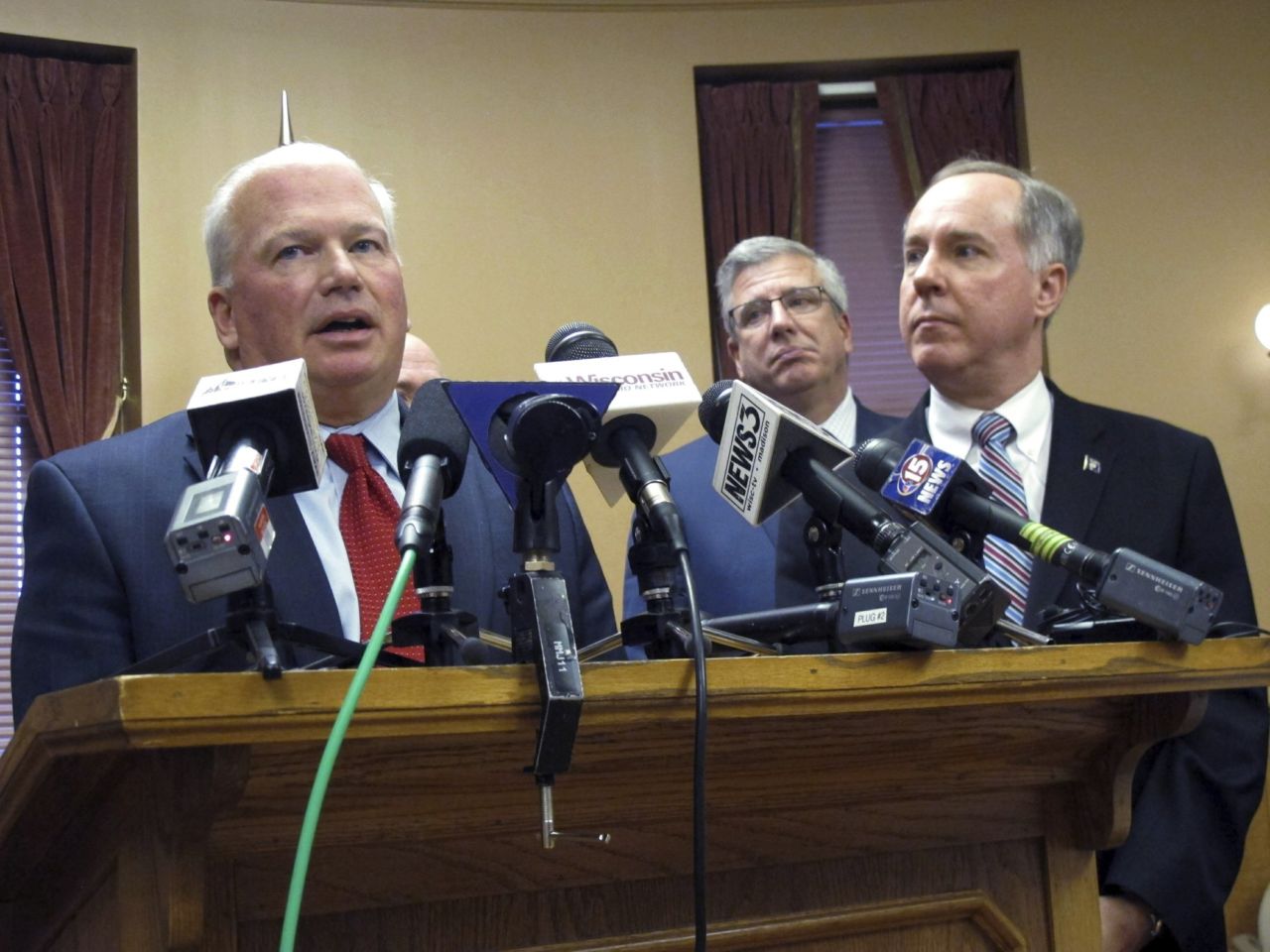Politics
What’s dead, what’s likely to become law in Wisconsin

MADISON, Wis. (AP) — The Wisconsin Legislature is hurtling toward the end of its two-year session with multiple high-profile bills still in limbo, including a $250 million income tax cut, a plan to allow bars to stay open until nearly dawn during the Democratic National Convention and banning anyone under age 21 from vaping.
The Assembly met for its final planned day of the session last week, with the Senate to return for one last day in late March. Here’s a look at what’s dead, what’s barely alive and what has a shot at becoming law:
DEAD:
— MORE MONEY FOR SCHOOLS: Republicans rejected Democratic Gov. Tony Evers’ call to spend $250 million of a budget surplus on K-12 schools, including $130 million to reduce property taxes. Republicans said school funding would be taken up next year when the next state budget is written.
— FACTORY FARMSITING CHANGES: Republicans wanted to change the process for approving and regulating large factory farm siting and expansion They wanted to create a new panel, consisting of agriculture groups, that would have to give its stamp of approval before the state would proceed. But the bill, made public in the final days of the session, couldn’t overcome questions about how much say local communities would have in the process. It never got a vote in the Legislature.
— SEXUAL ASSAULT TESTING: A bipartisan plan to avoid future backlogs of untested sexual assault evidence kits seemed poised for quick approval. Law enforcement, victim advocates, the former and current attorney general and a host of lawmakers all agreed on a plan that the Senate easily passed last year. But Republicans in the Assembly had other thoughts. They changed the bill to include new provisions Democrats, and some Republicans in the Senate, opposed. Senate Republican Majority Leader Scott Fitzgerald said there’s not support for the Assembly bill, meaning it’s dead.
— WHAT ELSE: Numerous other measures discussed during the year didn’t cross the finish line in one house or the other. Those include bills to legalize marijuana; increase penalties for carjacking and eluding police; allow lottery winners to remain anonymous; criminalize the harassing of high school referees; pay college athletes; make English the official language; and legalize the taking of selfies with a marked ballot, even though there’s no evidence of anyone being prosecuted for doing that now.
NOT DEAD YET:
— 4 A.M. BAR CLOSING: Bars in 14 counties in and around Milwaukee could stay open until 4 a.m. during the four nights of the Democratic National Convention in July under the measure that passed the Assembly with bipartisan support. It may take Democratic votes to pass the Senate, where Fitzgerald said support among some Republicans has waned.
— FARM AID: Tax cuts for farmers and other self-employed people totaling $36 million a year are pending in the Senate, along with other measures designed to help the state’s struggling dairy industry. Fitzgerald said something helping farmers will pass, but he hasn’t said what.
— WATER QUALITY: The Assembly passed 13 bills directing $10 million toward fighting water pollution. Fitzgerald said some, but not all, will pass the Senate.
— DRUG COSTS: A measure designed to reduce prescription drug costs by increasing regulation of pharmacy benefit managers passed the Assembly unanimously and is pending a Senate vote.
— CONSTITUTIONAL CONVENTION: A resolution calling for a convention of the states to amend the U.S. Constitution to impose term limits on members of Congress and limit federal government’s power passed the Assembly and is pending in the Senate.
— HOMELESSNESS AID: The Senate passed one of eight bills designed to fight homelessness in the state, but conservative Republicans have shown no interest in taking up the other seven that easily cleared the Assembly.
— WHAT ELSE? Numerous bills that passed the Assembly face an uncertain future in the Senate, including requiring the teaching of the Holocaust and cursive writing; banning smoking and vaping for anyone under age 21; bolstering efforts to fight pollution from chemicals known as PFAS; and prohibiting the labeling of food as meat, milk or dairy if it doesn’t contain those products.
WHAT SAY YOU, GOVERNOR?
— TAX CUT: Every Republican, and two Assembly Democrats, voted for a $250 million income tax cut bill. Evers has signaled that a veto is likely because he wanted lawmakers to spend that much on K-12 schools instead.
— TOUGH ON CRIME: Evers has been sent a package of tough-on-crime bills that are estimated to put more people in prison longer and requiring the building of two new prisons. Vetoes are likely given that Evers campaigned on criminal justice reform and reducing the state’s prison population.
— BODY CAMS: A measure prescribing how long police body camera footage needs to be retained, and the public’s right to access the material, cleared the Legislature and is awaiting action from Evers.
— BESTIALITY: A new felony would be created for bestiality under a bipartisan bill that Evers is likely to sign.
— DRUNKEN DRIVING: The minimum mandatory sentence for fifth and sixth drunken driving offenses would increase from six months to 18 months under a bipartisan bill sent to Evers. Wisconsin remains the only state where a first offense drunken driving is treated as a traffic offense and not a crime.
Follow Scott Bauer on Twitter: https://twitter.com/sbauerAP







